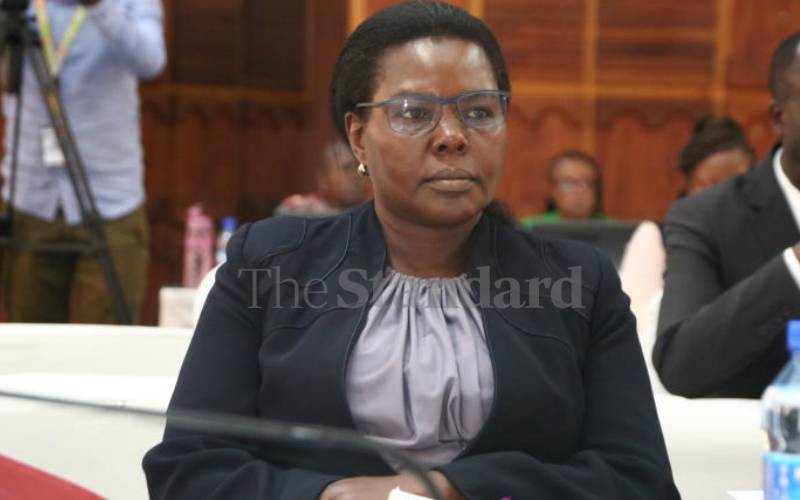×
The Standard e-Paper
Smart Minds Choose Us

Tribunal probing Independent Electoral and Boundaries Commission commissioner Irene Masit has recommended her removal from office.
In a report on Monday, tribunal chairperson Justice Aggrey Muchelule said the tribunal proved beyond reasonable doubt, allegations of gross misconduct against Masit.